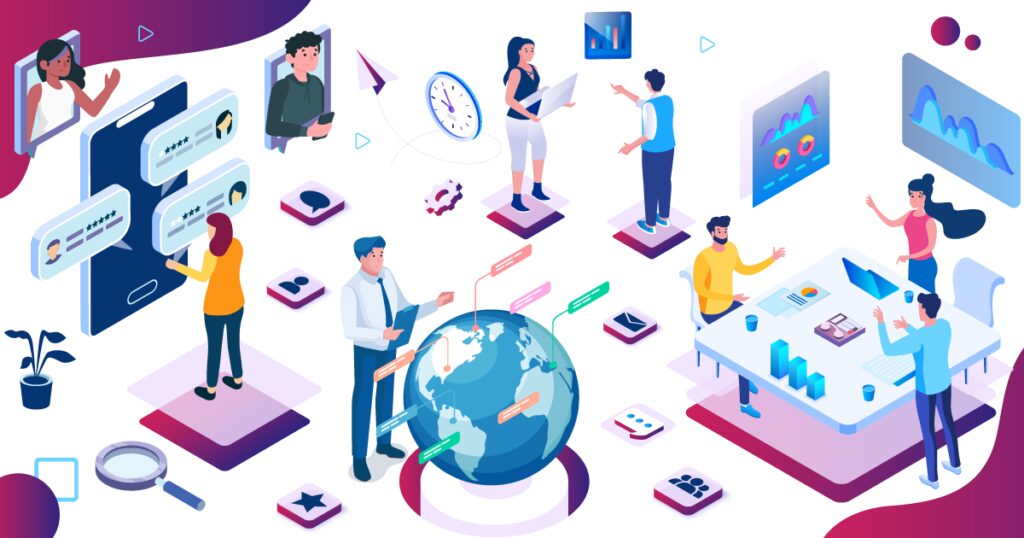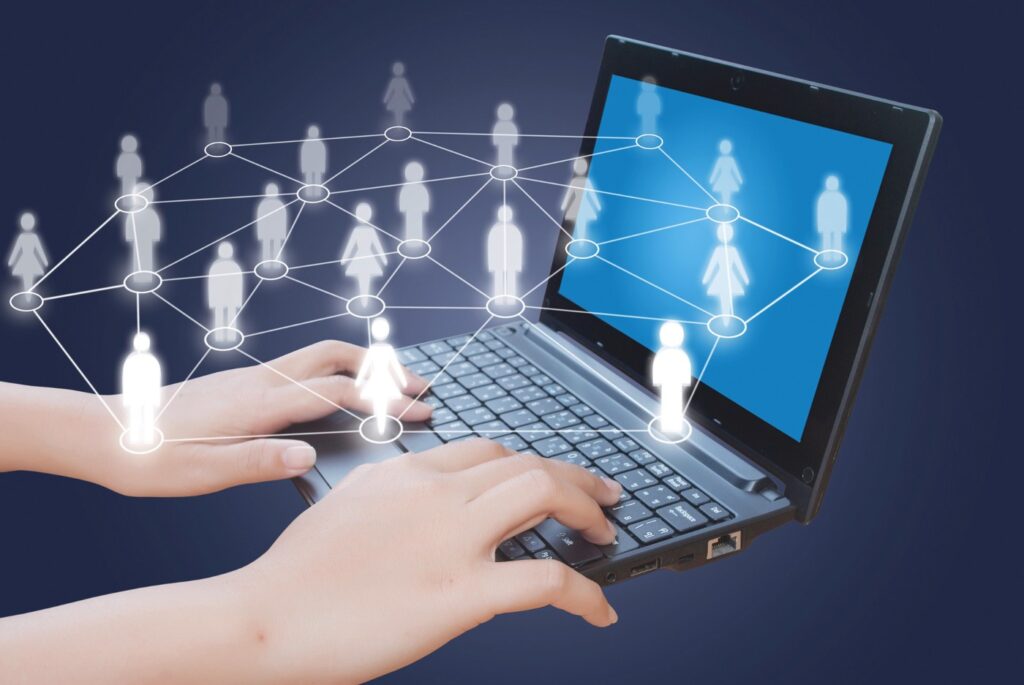
The Pros of Online Communication: How Technology Effect on It?
A decade ago, communication via the Internet was mainly used for entertainment purposes: chat rooms, social networks, ICQs and the like.
But today, internet communication is also a full-fledged tool for work: webinars and Skype consultations, solving group tasks in a general conversation, parents discussing school issues Is this good or bad? Let’s find out.
Features of online communication

Networking is a specific type of communication in which people interact via gadgets and the Internet. It is worth defining what exactly is meant by Internet communication: e-mail, social networks, Skype and video chats, chat rooms, online games, comments on videos or articles, forums – in short, almost anything the Internet provides.
The peculiarities of Internet communication include:

• Lack of non-verbal sources of information (wherever communication is not through a camera).
• Time lag (a reply can be given much later than the message received).
• Elimination of any barriers (local, temporal, linguistic).
• A familiar and comfortable place of communication that gives the person confidence and peace of mind.
• There is a high risk of misinformation and misconceptions, manipulation and deception (read about safety online here).
• The ability to talk about anything and everything about yourself. Strangely enough, it is easier for people to say something particularly embarrassing and painful to their soul (and thereby free themselves) to a stranger online than to a close friend.
• The opportunity to be oneself or, conversely, to be in a different role or persona.
• Writing, if you consciously watch your speech. Internet communication can help to improve literacy and presentation of thoughts. And journaling, for example, is a popular method of psychotherapy.
• Deterioration of spoken language. It is easier to express your thoughts on paper (keyboard, virtual sheet of paper). And if you don’t keep track of your writing, then gradually abbreviations and slang will enter your speech.
An interesting fact: on the Internet, people tend to exaggerate reality, embellish their lives and their image, and show themselves off. When we communicate on the Internet we only get 3% of the information about a person.
Skype communication is close to real interaction but still inferior. It is possible to schedule a time to connect, to prepare for it and, if you wish, to embody an image.
The benefits of online communication

The very fact of communicating with different people and removing any barriers is a plus, especially when it comes to work. It is virtual communication that allows many people to work from home. And for those for whom real contacts are energetically draining (often people of introverted type) it is a real boon. Even Ua.dating and other dating websites are live examples of tech-related communication method (online chats, etc).
Everything about work and the internet is a plus. Apart from the remaining nuance of the lack of non-verbal elements of communication. This can sometimes provoke misunderstandings or misperceptions about the person. But this can be solved. Let us stop here and talk about leisure time on the Internet.
Among the pluses are the following:

The possibility for people suffering from shyness, complexes or fears to make acquaintances, find friends and life partners;
voluntariness of interaction;
• the opportunity to control the meaning, content, grammar and other aspects of the information
• the ability to immediately find additional material and clarifying facts;
• the possibility of interrupting communication and blacklisting the person (a plus, but controversial);
stimulating one’s own motivation, self-esteem and self-confidence (for example, keeping a diary and communicating with one’s “brothers in mind” when losing weight);
developing fine motor skills.
Internet communication as a way of self-expression

There is no doubt that the entire Internet is a field for self-expression. Bloggers and video bloggers, magazine editors, authors of social networking pages and groups take advantage of this. All of these are forms of communication online. The possibility of self-expression in itself is beautiful.
The question is how one chooses to express oneself, what one wants to convey to people and what one takes for oneself. The main thing is that there is no “loneliness in the Web”: when you have many viewers and admirers, and there are virtual friends and enough comments, but no happiness in life, and no one to ask for help.
Afterword
To sum up, I would like to say that I am in favor of a combination of real and virtual communication. Technological progress should be used, but it should be done wisely. For instance, you can discuss something with a friend in the evening and agree that if you meet in person, you will finally figure it out.
As is often the case, the problem of online communication has two sides. You can’t judge it in terms of good/bad. What matters is not the fact of virtual communication, but the nature of the communication and the parties involved. You can communicate with interesting people and self-actualise, or you can just “kill time”, running away from yourself, creating the illusion of life and communication.
This is why you cannot judge risks without knowing the specific context. In this article I have divided the facts about Internet communication into pros and cons, but, as you probably noticed, each of them has two extremes: the advantage and disadvantage of communication within the World Wide Web.
Will virtual communication replace real communication? Possibly. Is it a good thing? No. Man is a social being, communication is an independent activity and a constitutive element of many activities. Without real, emotionally coloured communication, we cannot develop and become a person, an individual.
Virtual communication is, to a certain extent, deprivation. Online, we do not communicate with people, but with their images (made up by them or by us), a reworked surrogate of a personality. Real communication is more complicated, the risks of offence and conflict are higher, there is not always a chance for error and the opportunity to be non-ideal, ourselves, but it is much more interesting and useful.